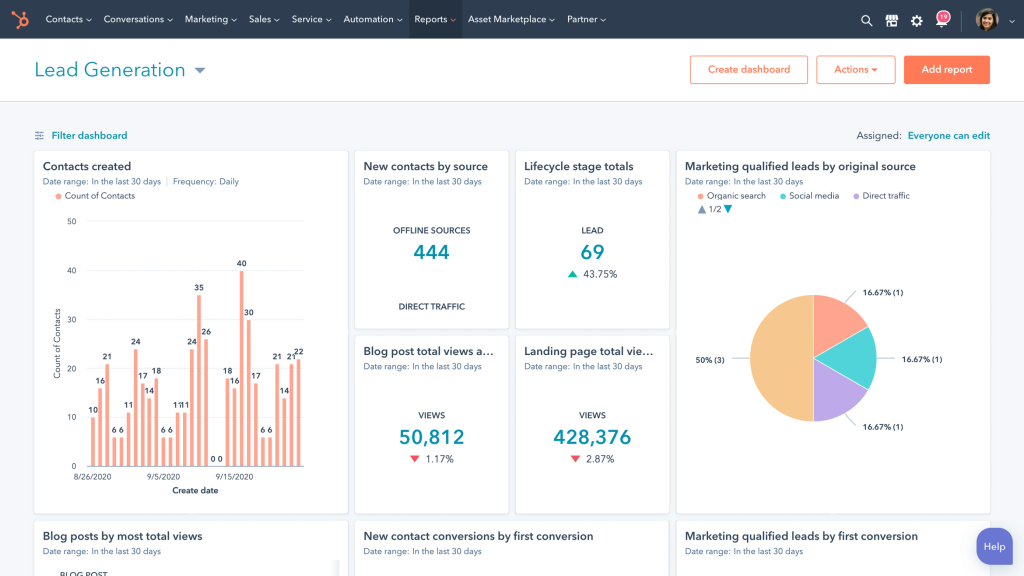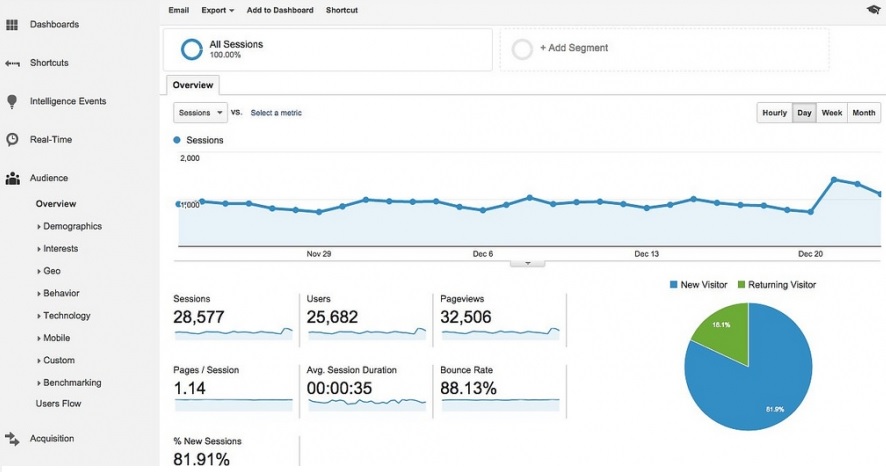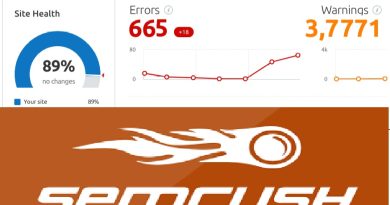How Effective social seo Exactly
In the digital marketing landscape, the synergy between social media and search engine optimization (SEO) has become increasingly evident. Social SEO, the integration of social media strategies with traditional SEO techniques, offers a dynamic approach to enhancing online visibility and engagement. But just how effective is social SEO in driving tangible results for businesses? Let’s delve into the nuances to uncover its true impact.
Understanding Social SEO: Social SEO encompasses various strategies aimed at leveraging social media platforms to boost a website’s search engine ranking and overall online presence. This approach involves creating and sharing engaging content, fostering community engagement, and generating social signals that influence search engine algorithms.
Key Components of Social SEO Effectiveness:
1. Increased Brand Visibility: Social media platforms serve as powerful channels for expanding brand reach and visibility. By sharing content across social networks, businesses can amplify their online presence and attract a wider audience. Social signals such as likes, shares, and comments contribute to brand visibility and recognition, indirectly impacting search engine rankings.
2. Enhanced Content Distribution: Social media platforms facilitate the distribution of content to a diverse audience, driving traffic back to the website. When users engage with and share content on social media, it signals to search engines that the content is valuable and relevant, potentially leading to improved search rankings.
3. Improved User Engagement: Active engagement on social media fosters meaningful interactions with followers, leading to increased user engagement and loyalty. Higher levels of engagement, such as likes, comments, and shares, indicate to search engines that the content is resonating with users, potentially boosting its visibility in search results.

4. Social Signals Impact SEO: While the direct correlation between social signals and search engine rankings remains debated, there is evidence to suggest that social signals can influence SEO indirectly. Although social media shares do not directly impact search engine rankings, they contribute to increased brand awareness, referral traffic, and backlinks, all of which can positively affect SEO performance over time.
5. Link Building Opportunities: Social media platforms provide opportunities for link building through content sharing, influencer collaborations, and engagement with industry peers. By fostering relationships and sharing valuable content on social media, businesses can attract backlinks from authoritative sources, which can significantly impact search engine rankings and domain authority.
Measuring the Effectiveness of Social SEO:
1. Social Engagement Metrics: Track metrics such as likes, shares, comments, and followers on social media platforms to gauge user engagement and sentiment. Analyze trends over time to identify which types of content resonate most with your audience and drive the highest levels of engagement.
2. Referral Traffic: Monitor referral traffic from social media channels to your website using analytics tools like Google Analytics. Measure the volume and quality of traffic coming from social media platforms to assess their impact on overall website traffic and conversions.
3. Search Engine Rankings: While social signals may not have a direct impact on search engine rankings, monitor changes in search engine rankings following social media activity. Look for correlations between increased social engagement and improvements in search rankings for targeted keywords and phrases.
4. Brand Mentions and Sentiment: Monitor brand mentions and sentiment on social media platforms to gauge brand awareness and perception. Pay attention to how users are discussing and interacting with your brand on social media and respond promptly to feedback and inquiries to maintain a positive brand image.
5. Conversion Rates: Ultimately, the effectiveness of social SEO can be measured by its impact on conversion rates and business outcomes. Track conversion metrics such as leads, sales, and revenue generated from social media channels to determine the ROI of your social SEO efforts.
In conclusion, social SEO can be a highly effective strategy for enhancing online visibility, driving user engagement, and ultimately improving search engine rankings. By integrating social media strategies with traditional SEO techniques, businesses can amplify their online presence, attract a wider audience, and achieve tangible results in terms of brand awareness, traffic, and conversions. While the direct impact of social signals on search engine rankings may be debated, the indirect benefits of social SEO in building brand authority, fostering community engagement, and driving referral traffic are undeniable. By monitoring key metrics and continuously refining your social SEO strategy, you can maximize its effectiveness and achieve long-term success in the competitive digital landscape.
In the ever-evolving landscape of digital marketing, the fusion of social media and SEO has emerged as a powerful strategy to enhance online visibility and engagement. But just how effective is social SEO in driving tangible results for businesses? Let’s delve into the intricacies of this dynamic synergy and uncover its true impact.
Understanding Social SEO:
Social SEO refers to the practice of optimizing social media content and profiles to improve search engine rankings and visibility. It involves leveraging social signals, such as likes, shares, comments, and brand mentions, to signal relevance and authority to search engines. By integrating social media into their SEO strategy, businesses aim to amplify their online presence, attract more traffic, and foster meaningful connections with their audience.

The Dynamics of Social Signals:
Social signals play a pivotal role in the realm of SEO, acting as indicators of a website’s popularity, authority, and trustworthiness. When content receives engagement on social media platforms, it sends positive signals to search engines, signaling that the content is valuable and deserving of higher visibility in search results. Additionally, social media profiles themselves can rank in search engine results, providing another avenue for businesses to enhance their online visibility.
Impact on Search Engine Rankings:
While social signals are not direct ranking factors in search engine algorithms, they indirectly influence search engine rankings in several ways. Firstly, social shares and engagement can increase the visibility and reach of content, leading to more backlinks, mentions, and citations from authoritative websites. These backlinks contribute to a website’s link profile, which is a key ranking factor in SEO. Secondly, active engagement on social media can drive more traffic to a website, which can improve user signals such as dwell time, bounce rate, and click-through rate—all of which are factors that search engines consider when determining rankings.
Enhancing Brand Authority and Trust:
Social SEO also plays a crucial role in building brand authority and trustworthiness, which are essential components of effective SEO strategies. A strong presence on social media platforms signals to users and search engines alike that a brand is active, engaged, and reputable. Brands that actively engage with their audience, share valuable content, and foster authentic connections on social media are more likely to be perceived as authoritative and trustworthy by both users and search engines.
Driving Referral Traffic and Conversions:
Beyond its impact on search engine rankings, social SEO can drive significant referral traffic to a website, leading to increased visibility, engagement, and conversions. When users discover content on social media and click through to a website, they become potential leads and customers. By strategically optimizing social media content and profiles to attract and engage target audiences, businesses can effectively channel social traffic to their website and capitalize on conversion opportunities.

Measuring Effectiveness and ROI:
Measuring the effectiveness of social SEO requires a holistic approach that takes into account various metrics and KPIs. Key metrics to track include social engagement (likes, shares, comments), website traffic from social media, referral traffic, conversion rates, and revenue generated from social channels. By analyzing these metrics over time, businesses can assess the impact of their social SEO efforts and determine their return on investment (ROI).
In conclusion, social SEO is a potent strategy that can significantly enhance a brand’s online visibility, authority, and engagement. By strategically integrating social media into their SEO strategy, businesses can amplify their reach, drive more traffic, and foster meaningful connections with their audience. While the exact effectiveness of social SEO may vary depending on various factors such as industry, target audience, and competition, its potential to drive tangible results and deliver ROI is undeniable in today’s digital landscape.
Maximizing Visibility through Social SEO:
Social media platforms serve as dynamic hubs of user activity, where content can quickly gain traction and visibility. By optimizing social media profiles and content for relevant keywords, businesses can increase their chances of appearing in search results on both social platforms and traditional search engines. Moreover, the interactive nature of social media allows businesses to engage directly with their audience, fostering a sense of community and loyalty that can translate into improved search engine rankings and brand recognition.
Building Backlinks and Authority:
One of the key benefits of social SEO is its ability to generate valuable backlinks to a website. When content shared on social media resonates with users, they are more likely to share it with their own networks, resulting in organic backlinks from authoritative websites and blogs. These backlinks not only contribute to a website’s link profile but also signal to search engines that the content is relevant and trustworthy. Additionally, active participation in social media discussions and communities can help establish a brand as an authority in its industry, further enhancing its online credibility and visibility.
Amplifying Content Reach and Engagement:
Social media platforms offer businesses a powerful channel for distributing content to a wide audience and driving engagement. By optimizing social media posts with relevant keywords, hashtags, and multimedia elements, businesses can increase the likelihood of their content being discovered and shared by users. The viral nature of social media means that compelling content has the potential to reach far beyond the initial audience, leading to increased brand exposure and awareness. Furthermore, social engagement metrics such as likes, shares, and comments can provide valuable insights into audience preferences and interests, helping businesses refine their content strategy and optimize future campaigns for better performance.
Enhancing Local SEO and Geotargeting:
For businesses with a local presence, social media offers unique opportunities to enhance their local SEO efforts. By optimizing social media profiles with accurate business information, including address, phone number, and business hours, businesses can improve their visibility in local search results and attract nearby customers. Furthermore, geotargeted social media advertising allows businesses to reach specific audiences based on their location, interests, and demographics, driving targeted traffic to their website and physical storefront.
Measuring ROI and Performance:
To determine the effectiveness of social SEO efforts, businesses must establish clear goals and KPIs and track relevant metrics over time. Key metrics to monitor include social media engagement, website traffic from social channels, conversion rates, and revenue generated from social referrals. By analyzing these metrics alongside traditional SEO metrics such as keyword rankings and organic traffic, businesses can gain a comprehensive understanding of the impact of their social SEO strategy and make informed decisions about resource allocation and future optimizations.
In conclusion, social SEO offers businesses a powerful means of increasing online visibility, driving engagement, and building brand authority. By optimizing social media profiles and content for relevant keywords, businesses can improve their chances of appearing in search results and attract more qualified traffic to their website. Moreover, social media provides a platform for building relationships with customers, fostering brand loyalty, and generating valuable backlinks that contribute to improved search engine rankings. With careful planning, execution, and measurement, businesses can harness the full potential of social SEO to achieve their marketing objectives and drive long-term success.
Exploring the Synergy of Social SEO:
1. Expanding Reach with Social Sharing: Social media platforms serve as digital arenas where content can go viral in a matter of minutes. By optimizing content for social sharing, businesses can tap into the vast networks of users on platforms like Facebook, Twitter, and LinkedIn. When content resonates with audiences, they are inclined to share it with their own followers, amplifying its reach and potential impact. This social sharing activity not only increases brand visibility but also contributes to the organic dissemination of content across the web, leading to enhanced search engine visibility and potential backlink opportunities.
2. Humanizing the Brand through Social Signals: In the eyes of search engines, social signals are akin to digital endorsements that vouch for the credibility and relevance of a brand or piece of content. When users engage with a brand’s social media content through likes, comments, shares, and mentions, they provide valuable signals that indicate genuine interest and engagement. Search engines interpret these signals as indicators of a brand’s authority and popularity, influencing its rankings in search results. By fostering authentic interactions and conversations on social media, businesses can humanize their brand and cultivate a loyal community of followers who actively support and advocate for the brand online.
3. Harnessing Influencer Marketing for SEO Impact: Influencer marketing has emerged as a powerful strategy for leveraging social media to enhance SEO efforts. Collaborating with influencers who have a strong following and authority in a particular niche can significantly amplify a brand’s reach and visibility. When influencers share branded content or endorse products/services on their social channels, they expose the brand to their audience, driving traffic, engagement, and potential backlinks. Additionally, influencer collaborations can contribute to brand mentions and citations across the web, further enhancing the brand’s online presence and authority in the eyes of search engines.
4. Optimizing Social Profiles for Search Visibility: Social media profiles themselves can rank in search engine results, providing additional opportunities for businesses to increase their online visibility. By optimizing social profiles with relevant keywords, descriptive bios, and consistent branding, businesses can improve their chances of appearing in search results for branded and industry-related queries. Moreover, social profiles often appear prominently in branded search results, providing users with valuable information and touchpoints for engaging with the brand across multiple channels.
5. Driving Traffic and Engagement with Social Content: Social media serves as a dynamic platform for distributing content and engaging with audiences in real-time. By creating and sharing high-quality, relevant content on social channels, businesses can attract users’ attention, drive traffic to their website, and encourage meaningful interactions. Whether it’s blog posts, videos, infographics, or user-generated content, social media offers a multitude of formats for engaging audiences and driving them to take action. Furthermore, the interactive nature of social media fosters dialogue and engagement, allowing businesses to gather feedback, address customer inquiries, and nurture relationships with their audience.
6. Tracking Performance and Iterating Strategies: As with any marketing strategy, measuring the effectiveness of social SEO efforts is essential for optimizing performance and driving continuous improvement. By leveraging analytics tools and social media monitoring platforms, businesses can track key metrics such as engagement, reach, referral traffic, and conversion rates. These insights provide valuable feedback on the effectiveness of social SEO tactics and help businesses identify areas for optimization and refinement. By continuously monitoring performance metrics and iterating strategies based on data-driven insights, businesses can maximize the impact of their social SEO efforts and achieve their marketing objectives effectively.
In conclusion, the synergy between social media and SEO presents businesses with a powerful opportunity to expand their online reach, enhance brand visibility, and drive meaningful engagement with their target audience. By optimizing social media content and profiles for search visibility, leveraging social signals to boost SEO rankings, and fostering authentic interactions with followers, businesses can unlock the full potential of social SEO to achieve their marketing goals and establish a strong online presence in today’s digital landscape.





